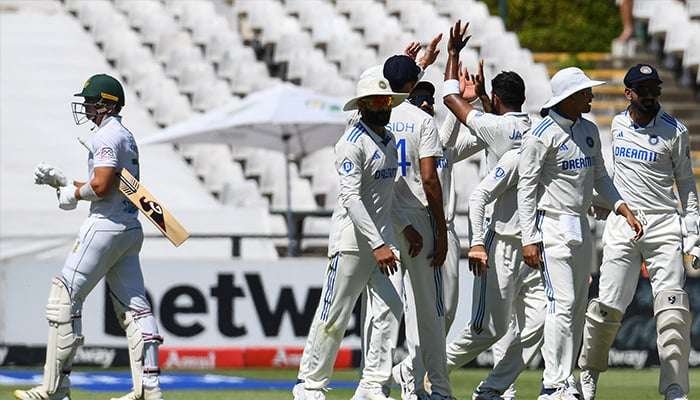On the first day of the match in Cape Town, 23 wickets fell, breaking the record set more than a hundred years ago in 1902.
An English-Australian match in 1902 had 25 wickets fall on the first day. On the first day of a match in 1890, 22 wickets were taken. All together, this is the fourth-highest number of wickets in a single day.
On the second day of the 1888 match between England and Australia, 27 wickets were lost. Twenty-four wickets were lost on the second day of the first Test in 1896. In the same way, 24 wickets were taken on the second day of the 2018 match between India and Afghanistan in Chennai.
On the second day of the 2011 South Africa-Australia Test in Cape Town, 23 wickets were lost.
The first two innings each went 349 balls, which is the second-fewest number of balls ever seen in 147 years of test cricket. In 1902, 287 packages were sent between Australia and England, which was the only shorter case.
An action-packed Day 1 in Cape Town comes to an end 🙌🏻
A total of 2️⃣3️⃣ wickets were claimed on the opening day!
South Africa 62/3 in the second innings, trail by 36 runs.
Scorecard ▶️ https://t.co/PVJRWPfGBE#TeamIndia | #SAvIND pic.twitter.com/7lo71BWms0
— BCCI (@BCCI) January 3, 2024
In the first innings, India’s last six wickets went without adding any runs to the score.
This is the first time in the history of Test cricket that six wickets fell in just 11 balls. Before, there were only four known cases of five wickets going without a run being scored.
Before this, the smallest run difference during the loss of six wickets was only one run. A similar thing happened to New Zealand in the Rawalpindi Test in 1965, when they lost six wickets and only scored one run.
Seven players had a score of 0 in another record. This was the first time in Test history that this happened.
Yashasvi Jaiswal, Shreyas Iyer, Ravindra Jadeja, Jasprit Bumrah, Mohammed Siraj, and Prasidh Krishna were the six Indian players who were out for zero runs. None of them scored a run. Mukesh Kumar was not out, but he did not score any runs.
India tied the record for most ducks in an innings with six. This was the seventh time in history that seven players were out for zero in an innings.
South Africa, on the other hand, made 55 runs, which is the fewest runs ever scored by a team against India in Test history.
Another record low score for South Africa when they chose to bat at home since 1889.
By the end of the day on the first day, South Africa had lost three more wickets and was 62/3. India is still ahead of South Africa by 36 runs.





